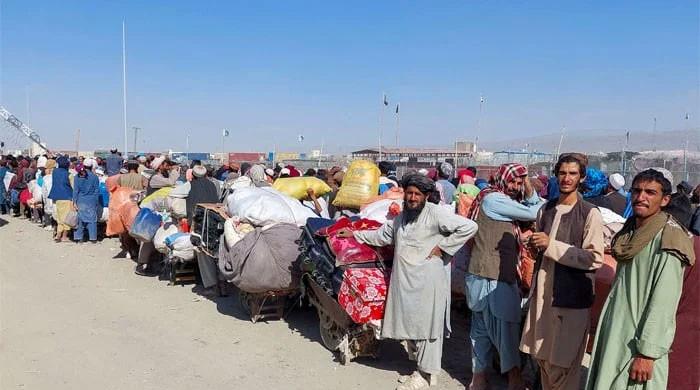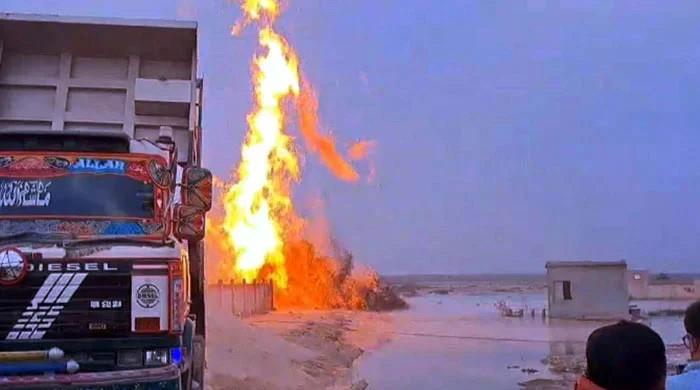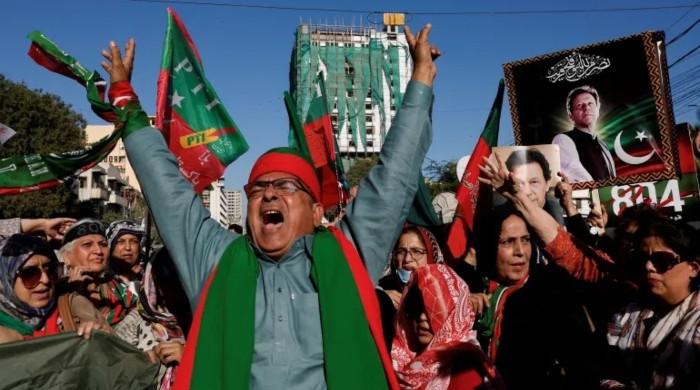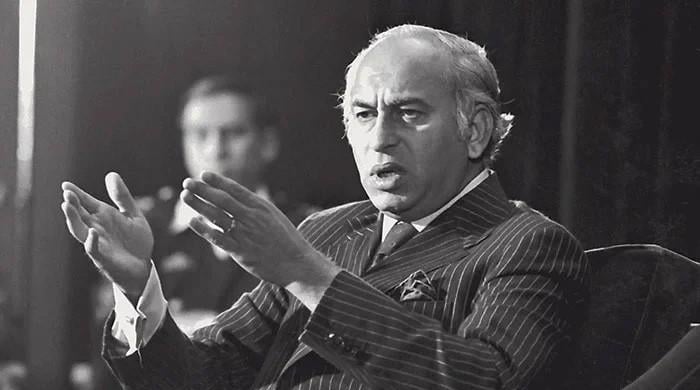Mutations, marriages or mausam — What's driving up coronavirus cases in Pakistan?
Dr Faisal Sultan says virus has not changed fundamentally or in how it is affecting us in any substantial or measurable way
November 20, 2020

As the second wave of coronavirus sweeps over Pakistan, authorities are more concerned about social interactions and seasonal viral infections compounding the spread of COVID-19 in communities than reports of it mutating and getting deadlier than before.
“As far as the virus is concerned — fundamentally and how it is affecting us — it has not changed in any substantial or measurable way,” Special Assistant to the PM on Health Dr Faisal Sultan said at a WHO press briefing on Thursday.
“Whether it does change in the future, only time will tell," he added.
Dr Sultan’s statement contradicts recent reports that the virus has already mutated. Leading pulmonologist Dr Shazli Mansoor had recently told The News that the infection has become more lethal. His words were echoed by Professor of Endocrinology/Medicine Dr Rauf Niazi at the Pakistan Institute of Medical Sciences (PIMS), who said newly-infected patients were 'severely' ill.
“There is no scientific evidence to back those theories,” said the special assistant while responding to a question by Geo.tv. “It may be some physician’s personal opinion or observation. Whether any of the mutations actually prove to be potent or an additional risk is not evidence at this time for this particular virus.”
Read more: Is the coronavirus becoming deadlier in Pakistan?
To some extent, Dr Sultan is right.
Viruses mutate all the time and most changes do not cause a problem. Researchers have cataloged more than 12,000 mutations in the SARS-CoV-2 genomes — and many of the mutations have no consequences for the virus’s ability to spread or cause disease.
But a study published earlier this month found that a mutation could potentially hamper efforts to develop vaccines and treatments.
“The virus that emerged in Wuhan was already very successful, very transmissible and it made people severely ill. So, the mutations that we’re observing at the moment are not massively changing the virus in any way,” lead author of the study Professor David Robertson told The Telegraph.
When the virus becomes an endemic, scientists may have to develop a new vaccine every year depending on the strain causing the illness — similar to influenza shots.
Read more: Ban on large gatherings in effect immediately
Mausam and marriages
For Pakistani authorities, the more pressing matter is the second wave coinciding with the winter season.
“The first wave hit Pakistan during mid-summers, when indoor activities are significantly low,” explained Sultan.
The winter season is a different story, where most events are held indoors and the Shaadi season hits its peak.
“Winters can be pretty severe, especially in the northern part of the country,” said the special assistant. “This impacts social mobility and interactions. For example, there are a lot of weddings during the winters. A lot of these factors may not necessarily be about winters but are impacted by it hence indirectly affecting the virus spread.”
Sultan said the authorities were also concerned about concurrent and other seasonal viral infections amid the pandemic. “We don’t know if they will be neutral, add to the risk, or perhaps provide protection.”
A study found the coronavirus to be particularly sensitive to weather, while another research found that COVID-19 favours cold and dry conditions — particularly out of direct sunlight.
The risk goes up in winters, but can be “dramatically reduced by good behaviour”.
“The second wave may be more damaging with winter approaching as opposed to the first wave, [which hit] when the cold season was ending,” said Dr Rana Jawad Asghar.
“If the infections rise, so will mortalities.”
“But that does not mean a worse second wave is our destiny. We could minimize the damage by better health intelligence and preventive measures.”
While federal and provincial governments fail to reach a consensus on additional measures to contain the spread, the country has already reported over 14,500 coronavirus cases and nearly 200 fatalities in the past six days alone.
Around the globe, governments are re-imposing lockdowns and urging social distancing to limit the second wave of infections. While Pakistani authorities have repeatedly stressed the latter, it remains to be seen if it will find its hand forced on the former.











